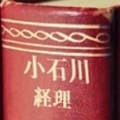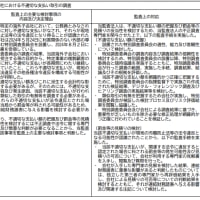米財務省が、「インバージョン」による租税回避を防止する措置を公表したという記事
「米財務省は米企業が納税額の減額を目的とする海外への本社移転をしにくくする措置を発表した。「インバージョン」として知られるこうした企業行動への対策を強化する。
22日以降に成立する取引に適用される新たなルールによれば、米企業は米国の税金を払わずに海外資金を調達する「ホップスコッチ」と呼ばれる融資の利用などができなくなる。企業や税務顧問などに対し、協議継続中の一部案件の再考を促す効果が期待される。」
日経でも比較的大きく取り上げていましたが、ちょっと何が書いてあるのかわかりにくい記事です。
米政府、租税回避に対抗措置 海外企業買収を監視(日経)
「米財務省と内国歳入庁は22日、米企業が米国の法人税を軽減する目的で海外企業の買収に動くことへの対抗措置を発表した。海外で稼いだ利益について、税金のかからない「融資」などの形で買収先企業に移転するのを取り締まる。監視強化で海外移転の利点を薄める狙いだ。」
米企業が海外の企業を買収することを規制するというよりは、国外企業との統合等の名目を使って、持株会社の国籍を国外に移して、節税しようとするのをやめさせようということなのでしょう。
Treasury moves to curb tax inversions(JofA)
4つのポイントがあるようです。
Treasury announced that it will take action in four specific areas.
First, it will act under Sec. 956(e) to prevent the use of so-called hopscotch loans. Hopscotch loans involve repatriation of foreign earnings by having controlled foreign corporations make loans to their new foreign parent, instead of the former U.S. parent. In the future, such loans will be considered U.S. property for purposes of the anti-avoidance rule.(支配下にある国外の会社から、新しい国外親会社への融資を行わせることにより、国外の利益を移転させる「ホップスコッチ・ローン」と呼ばれる取引については、そのような融資を米国内の資産とみなすようにする。)
Second, Treasury will act under Sec. 7701(l) to prevent a decontrolling strategy, in which the new foreign parent buys enough stock in the controlled foreign corporation to take control away from the former U.S. parent, giving the foreign parent access to the deferred earnings of the foreign subsidiary without paying tax. Treasury will treat the new foreign parent, in this situation, as owning stock in the former U.S. parent instead of the controlled foreign corporation.(新しい国外親会社が、(米国企業の)支配下にある会社の株式を取得して、米国企業である元親会社から支配権を移して、税金を支払うことなく、国外子会社の留保利益へのアクセスを得る取引については、国外親会社が、国外子会社の株式を保有しているのではなく、米国の元親会社の株式を保有しているものとみなすようにする。)
Third, Treasury will act under Sec. 304(b)(5)(B) to stop inverted companies from transferring cash or property from a controlled foreign corporation to the new foreign parent, avoiding U.S. tax.(支配下にある国外会社から新しい国外親会社に、キャッシュや財産を移転して、米国の課税を回避することをストップする。)
Finally, Treasury will act under Sec. 7874 to strengthen the requirement that former owners of the U.S. entity own less than 80% of the new combined entity. These steps will include limiting the ability of companies to count passive assets that would inflate the new foreign parent’s size; preventing U.S. companies from making extraordinary dividends to reduce their pre-inversion size; and stopping “spinversions,” in which a U.S. entity transfers assets to a new foreign entity, which it spins off to its shareholders.(米国企業の元株主が新しい統合会社の80%未満の持分しか有していないという条件を強化する。)
インバージョンにより、最上位の親会社が国外の会社になってしまうわけですが、それだけでは節税になりません。それまで米国企業の下にぶら下がっていた国外子会社について、その利益を米国企業を通さずに(通すと米国の税金がかかる)、新親会社(国外会社)に移すためにいろいろなスキームがあるのでしょう。また、利益が出るような資産を税金の低い国外に移転することによる節税もあるのでしょう。今回の措置はそのようないろいろな手法をストップしようということのようです。
Treasury Acts to Rein in Corporate Tax Inversions(CFO)
上記の3番目の措置は、新・国外親会社が、米国の元親会社の株式を、元親会社の国外子会社(米国の課税がまだなされていない利益をため込んでいるような会社)に売却し、キャッシュやその他の財産を取得するという取引も対象となっているようです。日経記事では「米国の買収先企業が米の海外子会社に自社株を売って巨額の資金を得る」取引と書いています。
In a third action, Treasury moved to close a loophole to prevent inverted companies from transferring cash or property from a foreign subsidiary to the new parent to avoid all U.S. tax.
In such moves, the new foreign parent sells its stock in the former U.S. parent to an overseas subsidiary where U.S.-tax-deferred earnings are parked. In exchange, the new parent gets cash or property from the foreign subsidiary. The maneuver can result in a tax-free repatriation of cash or property that bypasses the U.S. parent. “Today’s action would eliminate the ability to use this strategy,” according to Treasury.
Fact Sheet: Treasury Actions to Rein in Corporate Tax Inversions(米財務省のプレス用資料)
Details of proposed anti-inversion rules are revealed(JofA)
最近の「企業会計」カテゴリーもっと見る
最近の記事
カテゴリー
バックナンバー
2000年
人気記事




